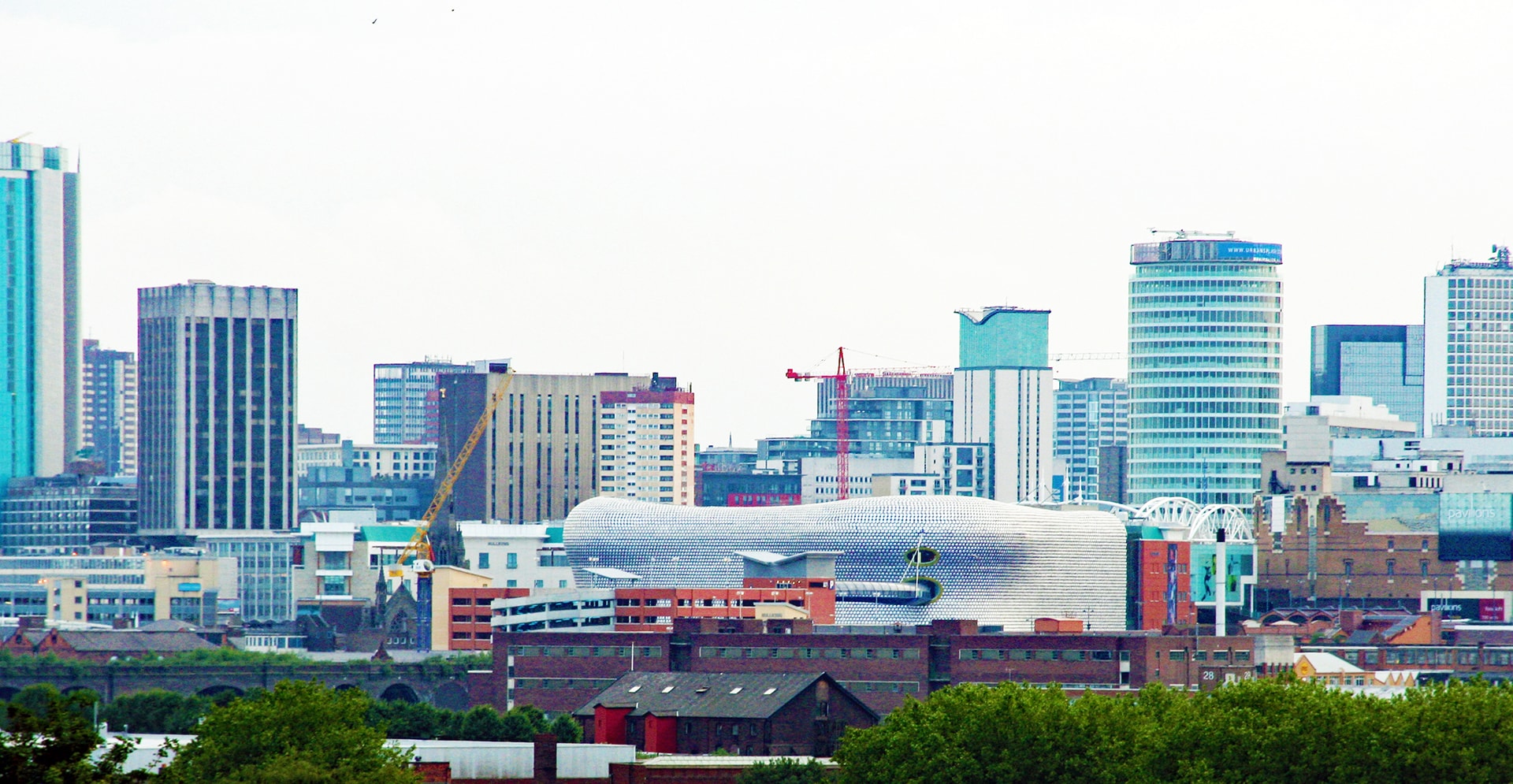With Birmingham set to host the 2022 Commonwealth Games, the eyes of the nation are going to be firmly fixed on the region as it gets ready to deliver one of the most spectacular sporting events in the world. Yet, as excitement builds, the certainty of the challenge ahead is real.
Photo copyright of Tony Hisgett
Tourism related to the 2014 Commonwealth Games in Glasgow contributed £282m to the Scottish economy. More than 4,500 athletes from 71 nations took part in events that were broadcast to a worldwide audience of over a billion people. The Birmingham Commonwealth Games could be even bigger.
From transport infrastructure to sporting facilities and even hotel accommodation, the factors that Birmingham needs to consider in the run-up to the Games are numerous. With so much at stake, how is Birmingham going to make sure it’s ready to deliver such a large-scale event?
Firing the starting gun – regenerating Birmingham for the Commonwealth Games
Birmingham is in a constant state of evolution, and 2018 is expected to be a key year for property developments and regeneration projects across the region. Already in the midst of delivering HS2 and the Birmingham metro extension, to the planned £3.4bn investment in Wolverhampton and regeneration of the city’s Canalside South Quarter, the entire West Midlands is already in the middle of a massive renaissance.
The addition of the Commonwealth Games means a much bigger portfolio of work needs to be delivered in a much shorter time frame than initially planned. City leaders will need to consider all the potential pinch points.
Do we have the right skills, at the right capacity to deliver the Birmingham Commonwealth Games?
The most important factor for a successful Games: do we have the skills to deliver an event of this scale?
The ever-increasing need for labour poses a real problem. However, the issue is about more than just volume. This is about finding the right people, in the right place, at the right time. Where are the skills going to come from?
Competition is fierce and finding the right people during Games time is just part of the challenge. The UK already has more than £500bn of infrastructure projects in the pipeline, many of which touch the Midlands. These all need to be resourced, so how can the Commonwealth Games compete?
Even without taking the Games into consideration, the UK construction industry will need to build at a rate of over £95,000 every single minute for the next decade to come close to meeting national infrastructure ambitions. This will mean more than doubling the historic peak rate of delivery.
The arrival of the Commonwealth Games adds even more pressure, and will require a major step-change both in how we plan and how we deliver construction in the UK.
Airport readiness for the Commonwealth GamesIn the days before and after the Games, a massive influx of people will be arriving in the city - from tourists and spectators to the athletes themselves. Queensland Government is expecting 1 million spectators to the Gold Coast during the Commonwealth Games in April 2018.
Many of these will arrive by air, but getting such a large volume of people through the airport in such a short space of time requires a huge amount of planning, preparation and organisation. It’s not just the spectators; the athletes themselves will be travelling with their equipment, which can range from archery equipment through to poles for vaulting and weapons for fencing and shooting. Getting these items through the baggage and security systems poses a major logistical challenge.
It’s an issue that Arcadis is familiar with, having worked with Heathrow Airport in a live environment to create a temporary terminal for the London Olympics. This not only ensured the airport could cope with the additional capacity, but resulted in the minimum amount of disruption being felt by non-Games related travellers.
Managing the transport network for the Commonwealth Games
One of the biggest issues facing the transport network is how to manage the delivery of construction work – whether airport, rail or roads related – without impacting other users. Often, redevelopment or upgrade work will be undertaken in a live environment.
The challenge of working in a live environment is one we’ve already overcome at London Bridge station, where all the £1bn redevelopment works were undertaken while the station handled up to 52 million passenger journeys a year.
Similarly, while Birmingham’s infrastructure must be up-to-scratch to cope with the sheer volume of people who are dependent on it during the Games, it still needs to function effectively during the run up to the Games. Perhaps the solution could be for parts of the bigger infrastructure projects, like HS2, to be reprioritized and factored into becoming integral parts of the wider Games delivery portfolio. This means links between schemes can be identified and addressed from the very outset. Road closures and increased congestion around the Games will be unavoidable. However, severe negative consequences can be mitigated through activities that create alignment and investment in projects that prioritise delivery of Games outcomes, without compromising future legacy related benefits. At the London Olympics, sprint buses were used as an additional mode of transport for spectators. Transport planning teams were required to manage the flow of traffic, whilst keeping pedestrians safe. This strategy and approach can help to relieve some of the short-term pressure on local transport services without compromising future plans.
Hotel capacity during the Commonwealth Games
Tourists and spectators want to be as close to the action as possible; and this includes their accommodation. During the 2014 Games in Glasgow, almost 700,000 people travelled to the city, which resulted in hotels being at maximum capacity and, with this, soaring costs.
With hundreds of thousands of British, as well as overseas, tourists expected to descend on Birmingham in the summer of 2022, does the city have the capacity to accommodate this?
Qatar is similarly facing a massive challenge around hotel rooms during the 2022 FIFA World Cup™. Arcadis has been directly involved in managing the design and construction of several the facilities being created for the tournament, and one of the solutions currently being considered for accommodation involves docking cruise ships close to shore and using these as floating hotels. While of course this won’t be an option for Birmingham, equally innovative temporary or permanent accommodation solutions may still be needed. Consideration should be given as to how a short-term need might be translated into an opportunity to provide a longer-term benefit for Birmingham and the wider Midlands region.
The final countdown
The Commonwealth Games is far more than just a sporting event, and the potential to support the ripple effect of transformation for Birmingham and the Midlands is immense. However, with less than four years until the Opening Ceremony, there is a lot to be achieved. Yet with careful planning and an integrated benefits-led approach to aligning immediate need for Games delivery with the wider vision and long-term regional strategy and goals, Birmingham 2022 could be the most exciting and economically beneficial thing to happen to the Midlands.

